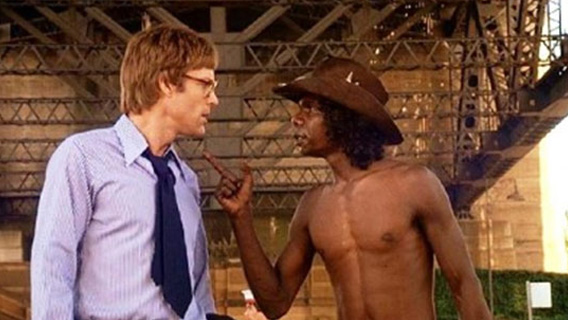
Australia / 1977 / 106 min / DCP / Fantastic
Director : Peter Weir
Script : Peter Weir, Tony Morphett, Petru Popescu
Cinematography : Russell Boyd
Editing : Max Lemon
Music : Charles Wain
Production : Hal & Jim McElroy
Distribution : Bac Films
Cast : Richard Chamberlain, Olivia Hamnett, David Gulpilil, Frederick Parslow
Digitally restored
A Sydney lawyer has more to worry about than higher-than-average rainfall when he is called upon to defend five Aboriginals in court. Determined to break their silence and discover the truth behind the hidden society he suspects lives in his city, the Lawyer is drawn further, and more intimately, into a prophecy that threatens a new Armageddon, wherein all the continent shall drown.
Peter Weir
Peter Weir (born in 1944, Sydney) is an Australian film director known for intelligent emotional dramas that frequently explore the relationship between characters and their social environment. After working as a cameraman and producer for an Australian film studio, Weir began directing films. His first feature film is The Cars that ate Paris (1974). He won an international audience with the haunting and atmospheric Picnic at Hanging Rock (1975), which was followed by The Last Wave (1977), Gallipoli (1981), and The Year of Living Dangerously (1982). In 1985 he directed his first Hollywood film, Witness, for which he received an Academy Award nomination. He continued to earn acclaim with films such as Dead Poets Society (1989), a drama set in a boys’ preparatory school in the 1950s, The Truman Show (1998), a fable about the tyranny of the media, and Master and Commander: The Far Side of the World (2003), a seafaring epic based on the series by Patrick O’Brian; the movies all earned Weir Oscar nominations for best director. His other films include The Mosquito Coast (1986), Green Card (1990), Fearless (1993), and The Way Back (2010).




